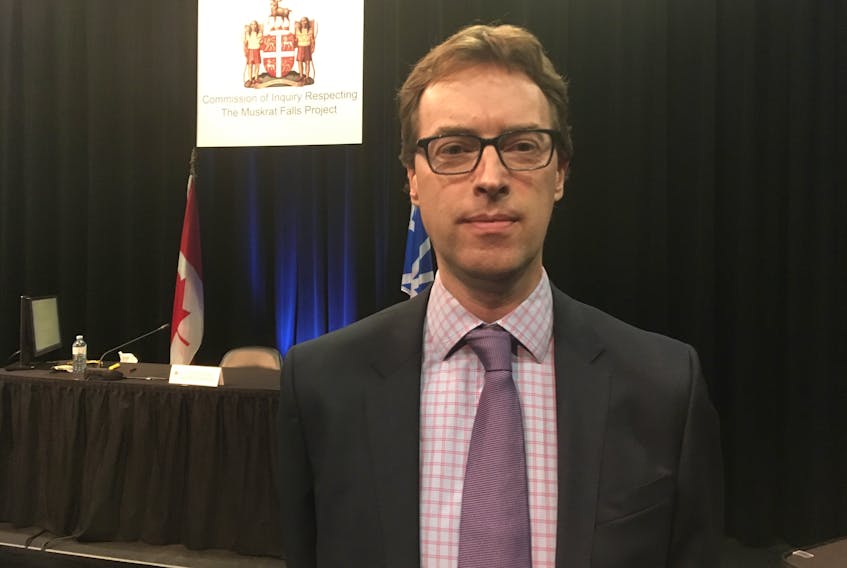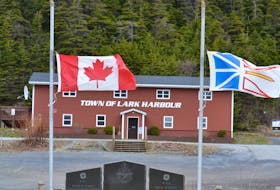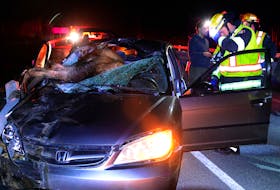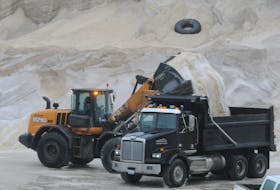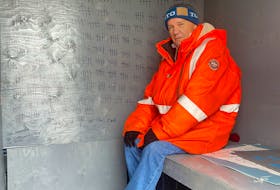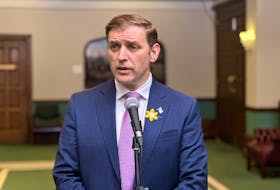At the Muskrat Falls Inquiry, lawyer Tom Williams (representing former Progressive Conservative members of the House of Assembly, not including Kathy Dunderdale) asked an expert witness this week about oversight of Crown corporations.
Williams focused on oversight of Nalcor Energy and the Muskrat Falls project.
At one point along the way, the witness — Guy Holburn, from the Ivey Business School at the University of Western Ontario — mentioned an aspect of oversight that did not exist in this case. And the moment was easy to miss.
Williams was urging Holburn to acknowledge the different aspects of oversight involved.
“So, for example, there would have been a project management team established, which would have had direct involvement with contractors,” he said, asking if this would be one element of oversight.
“Yes,” Holburn replied.
And they kept going.
Williams mentioned the executives overseeing the project team, the Nalcor Energy board of directors overseeing the executive, internal and external auditors used by Nalcor Energy, an audit committee of the board, the work of consultants (including the independent engineer working for the federal government), government regulators (for example, the Canadian Environmental Assessment Agency) and required annual reports to the minister of Natural Resources atop project-specific reports to the minister and cabinet.
Then, Holburn said, “The minister is responsible to the legislature and the legislature would typically have a committee that is able to exert oversight over the corporation as well.”
“OK,” Williams replied, before moving on.
But there was no empowered committee of the legislature in this case.
‘Just imagine’
NDP MHA Gerry Rogers has previously spoken about a need to reactivate legislative committees of the House of Assembly, in the context of democratic reform. Committee work offers another opportunity for public exchanges, but also information gathering and even direct public engagement, Rogers told The Telegram on Tuesday.
“Imagine if we had a select committee on Muskrat Falls?” she said, suggesting witnesses could have been called, reports sought, questions posed directly to Nalcor Energy executives. “Just imagine.”
Imagine is all anyone can do at this point, because despite Holburn’s description of legislative committees as a common and understood element of oversight, there was no standing committee that spent time looking at the Muskrat Falls project and no select committee (one-time committee) struck to look into it.
“In a non-partisan and open manner, we would have been able to look at the proposed Muskrat Falls,” Rogers said, noting it’s standard that members of different parties in the House are represented on committees.
She said it’s a problem that Justice Minister and Government House Leader Andrew Parsons did not specifically insist on a review of committees as part of the terms of reference for the all-party committee on democratic reform.
But Parsons told The Telegram there’s already work happening behind the scenes, trying to sort out how to both renew and put new life into the use of legislative committees in Newfoundland and Labrador.
It’s been discussed in meetings of another committee, in fact, one responsible for standing orders of the House. And that’s a committee NDP MHA Lorraine Michael sits on.
The group has been working through a list of concerns, Parsons said, introducing changes in recent years for everything from the rules of petitions, to the introduction of Wednesday morning sittings while the House of Assembly is in session.
The work of committees is on the list, he said, while suggesting Rogers speak to Michael on the subject.
Information by committee
There are different types of legislative committees. Standing committees typically deal with areas of ongoing concern. The House of Assembly has seven (government services; miscellaneous and private bills; privileges and elections; public accounts; resource; social services; and standing orders), all with varying level of activity. The Privileges and Elections Committee, for example, was recently in the spotlight as it looked at the approach of the House to allegations of harassment.
But the Resource Committee (including concerns related to Fisheries, Natural Resources, Advanced Education, to name a few areas) and the Social Services Committee (covering Health, Justice, Municipal Affairs, Education and more) are typically only active at the time the provincial budget is released. The committees will meet in the following month, until departmental budgets can all be reviewed line by line.
Select committees are another type of committee. These committees often review bills before they become law, investigating and reporting back to the House of Assembly. They tend to be struck, review a specific item and then dissolve immediately following their report.
There is also the Committee of the Whole, where all members of the legislature can debate other committee reports (if they’re available) and add comments on bills before the final vote. So if watching a House of Assembly live stream, this is the point where the Speaker will leave his seat, and that seat is taken by another member. The Speaker returns after the committee session.
In other provinces, from Nova Scotia to British Columbia, committees regularly review the work of Crown corporations. They meet independently and have powers to call in experts, and more closely review proposed changes in legislation but also issues of concern deemed within the purview of the committee. They can gather more information.
The use of committees can affect the timeline of legislation, given issues or bills referred to committee need time before they can come back to the House and proceed.
And notably, any changes proposed in the use of committees at the House of Assembly have to then be approved by the House. They are unlikely to take effect before the next election.
Twitter: @TeleFitz
RELATED

